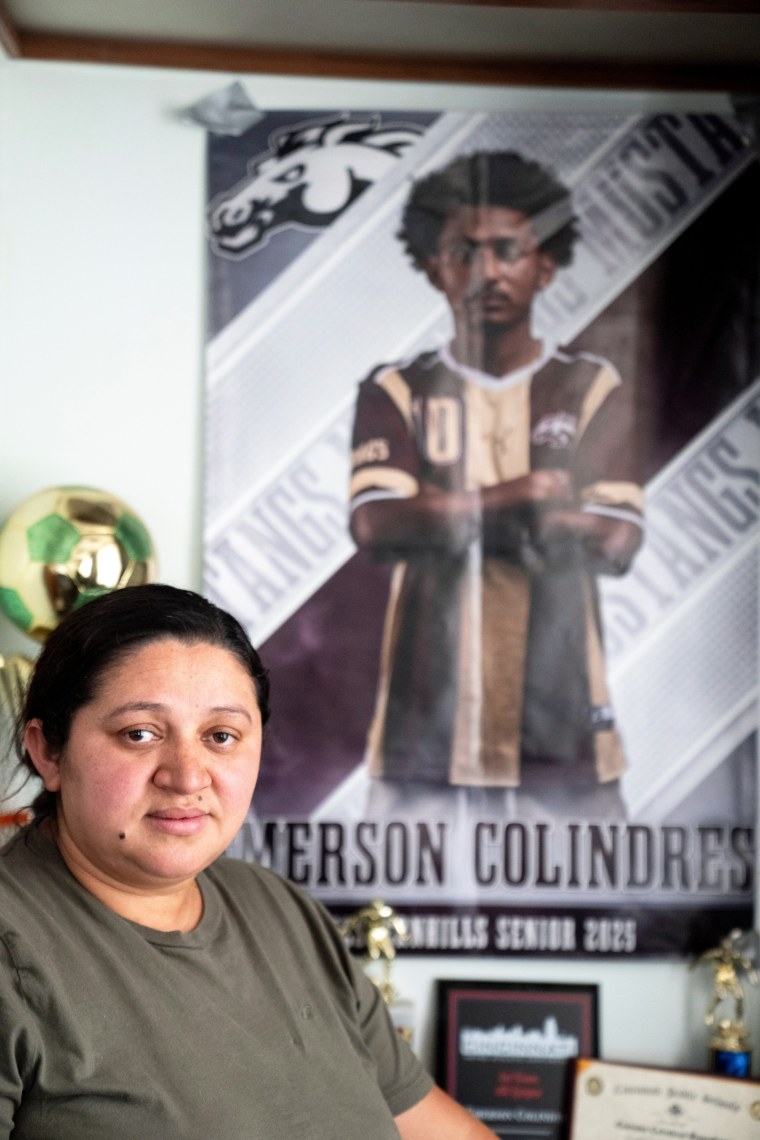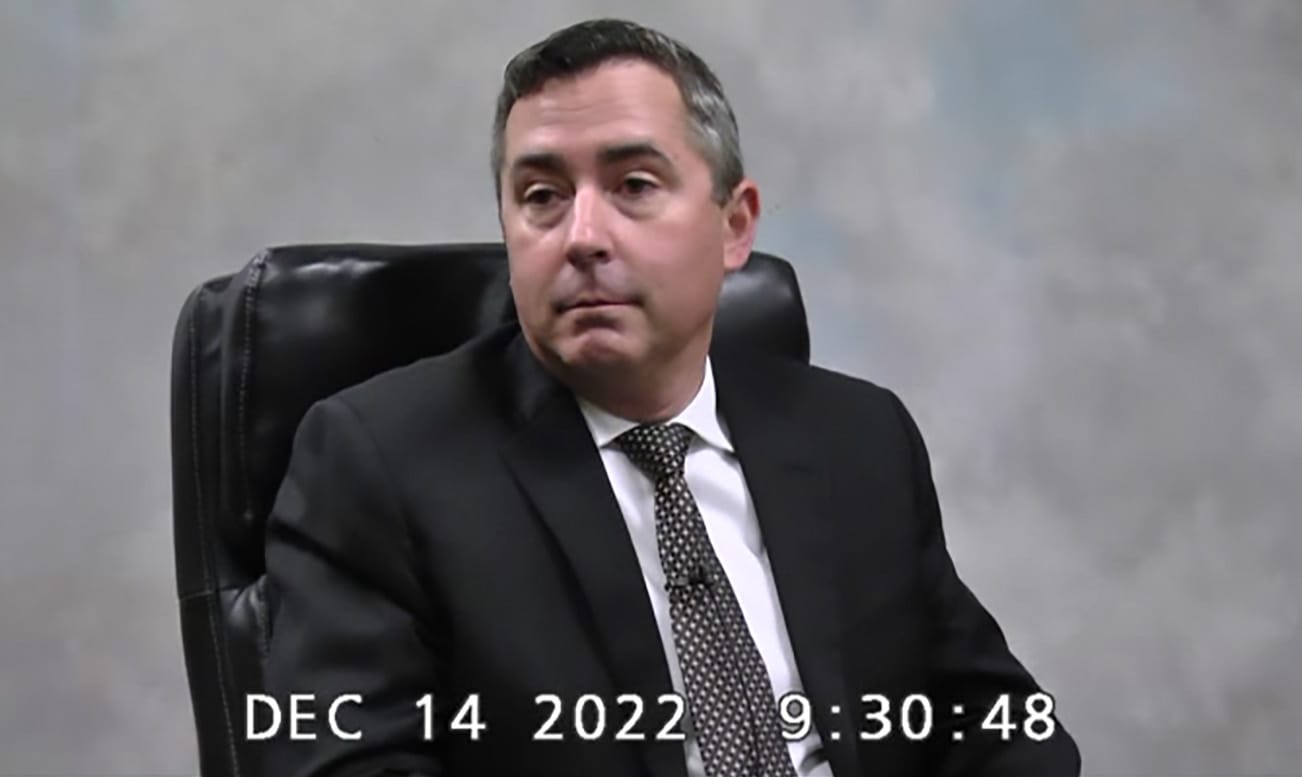
VALLEJO – Enrique Jimenez, a 23-year-old carpenter, parked his white Ford Bronco behind the Grocery Outlet in Central Vallejo every day waiting for his boss to pick him up for work. On Jan. 21, 2011, he was waiting there as usual, when an unknown assailant shot him through his closed driver’s side window just after 5 a.m., shattering the window and killing Jimenez.
The investigation into Jimenez’s murder was assigned to then-Detectives Ted Postolaki and John Whitney of the Vallejo Police Department. Later that morning, Whitney went to Jimenez’s house with then-Officer Jason Potts to secure it while Postolaki obtained a search warrant. Their job was to make sure that the scene was secure and not contaminated before they could search it.
Whitney recalled in a deposition last month that he was shocked when Potts went into Jimenez’s freezer and helped himself to some frozen corn dogs.
“It was wildly inappropriate to sit and eat somebody else’s food who had just been murdered,” Whitney testified. “I just remember how it made me feel. You’re eating his food. He just died a few hours ago, he was murdered, and you’re sitting there eating his food in his kitchen? And I remember him sitting on the couch just eating the corn dog.”
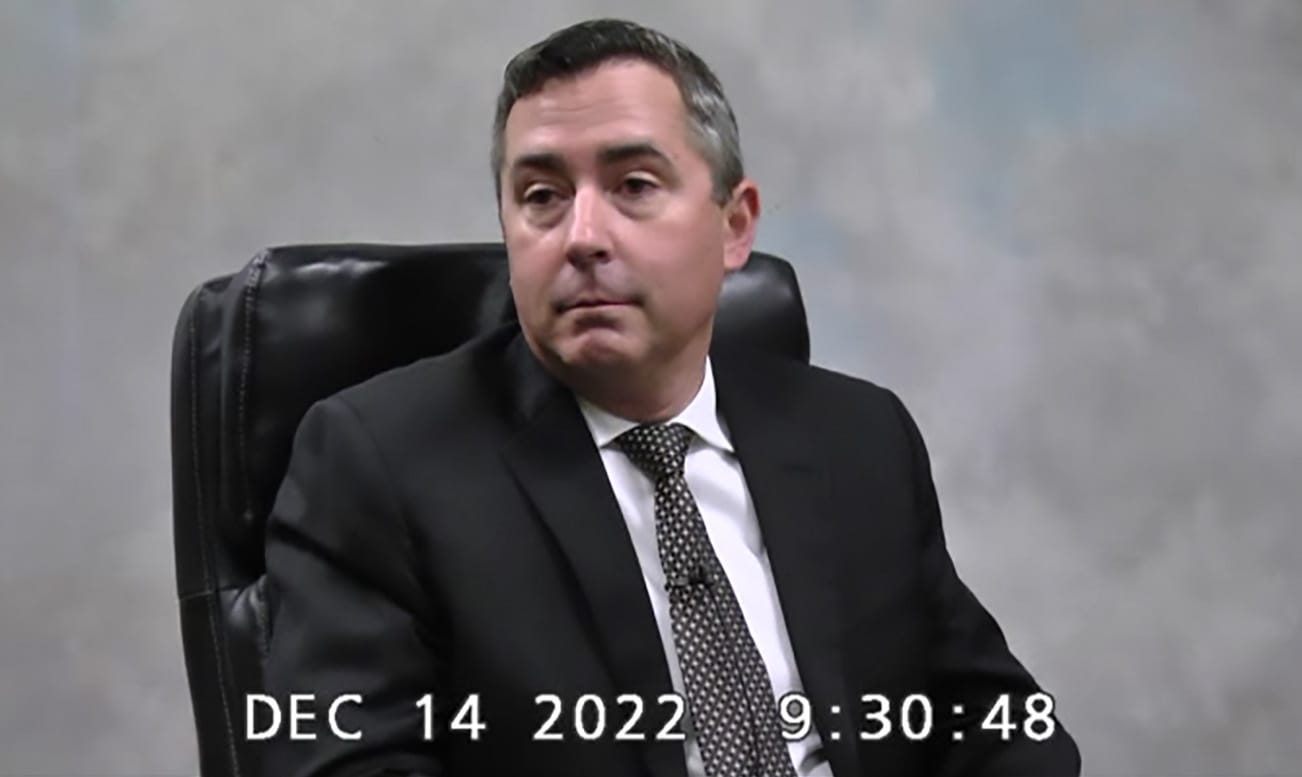
Whitney, who rose to the rank of captain and was fired in 2019, later won a $900,000 settlement from the city. He has made numerous allegations of a broken, toxic policing culture in Vallejo. His latest testimony, which was made in an ongoing civil rights lawsuit over a 2019 incident, describes the department illegally withholding records from courts and officers intimidating him for speaking out. Other testimony in the lawsuit, including from a veteran police recruiter, describes racism and further threats and retaliation directed at anyone who sought change in the department.
Whitney alleges that numerous allegations of misconduct were not properly investigated, including a serious allegation that came up in the investigation into Jimenez’s murder. Postolaki and Whitney identified two brothers who were potential suspects in Jimenez’s killing: former gang associates of Jimenez who were rumored to have bragged about killing him. Police brought them in for questioning.
During their interviews, the brothers claimed that another Vallejo police officer, Steve Darden, was having an affair with their mother. After that, Sgt. Kevin Bartlett — who was in charge of the homicide division at the time — stopped the interview and seized their DVD recording, which he never gave back to the detectives, according to Whitney. The brothers were released.
Whitney said he later discovered that Darden had been driving to police headquarters, leaving his car there, and spending time with the woman while claiming to be at work and submitting timecards to the department.
Whitney was promoted to sergeant, and Darden was placed under his command. He said that he inquired about the incident, and learned that the department never opened an investigation into Darden’s actions, because then-Lt. Lee Horton — Darden’s friend and the head of the professional standards division — handled it himself and placed Darden on paid leave for 12 weeks.
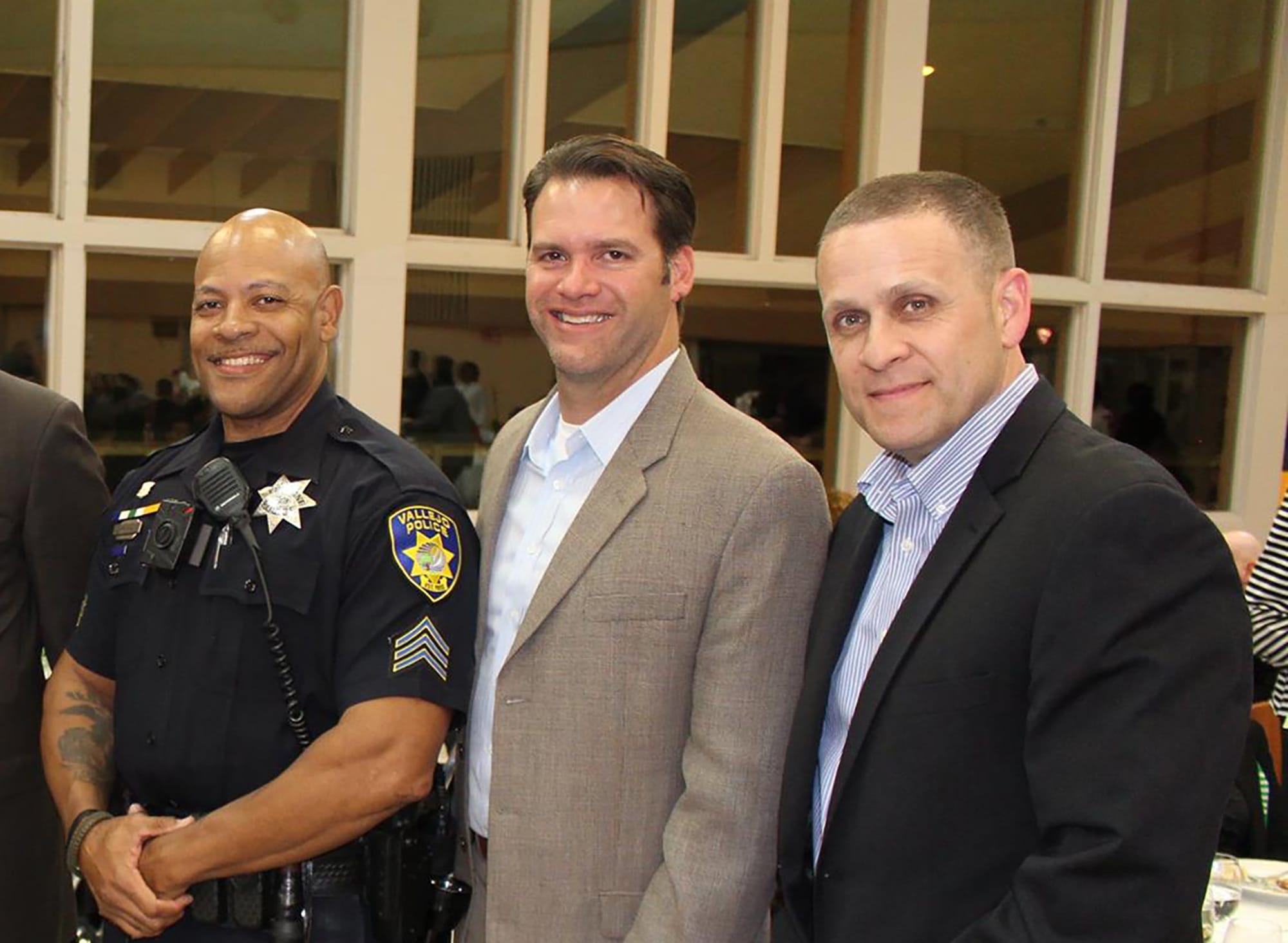
Asked for comment, Darden, now a Vallejo police lieutenantdenied the allegations in an email and claimed that Horton, who retired in 2022, had evidence that Whitney had committed timecard fraud.
Whitney testified that it was Potts who told him years later how the department scuttled investigations into numerous complaints and kept those records from the courts. In 2015, Whitney was assigned to head the professional standards division and Potts was a sergeant in internal affairs under Whitney’s command.
Whitney said that Potts disclosed to him that there were two filing systems in internal affairs: one for investigations the department conducted, and the other for “informal resolutions” of citizen complaints of misconduct, which were kept in Potts’ office. For the latter, the department would conduct a cursory investigation into the complaints without reaching a formal conclusion.
“They just put them in a desk drawer and waited the 12 months,” Whitney said, noting that if a finding wasn’t made in 12 months, by law the officer couldn’t be disciplined. Otherwise, a sergeant may call a complainant once and stop trying if they didn’t pick up or quickly interview the officer and make an informal finding.
Whitney was alarmed by the practice because the records weren’t turned over to criminal defendants, a potential violation of their due process rights. The California Supreme Court ruled in 1974 that criminal defendants have a right to examine the personnel records of police officers who testify against them to impugn their testimony. The “Pitchess” records are examined by a judge, who rules on whether to allow the evidence into the trial.
“A judge is supposed to make those decisions, not police officers,” Whitney said.
Potts, now the chief of the Las Vegas Department of Public Safety, did not respond to a request for comment.
A custom or policy of violating Constitutional rights
Years later, Whitney publicly exposed that some Vallejo police officers were bending the tips of their badges to mark shootings. The department fired him after he raised the practice with superiors and city officials. He then revealed it publicly in a lawsuit and media reports.
Whitney had been aware that some officers had engaged in badge bending since 2014but realized it had continued after the 2019 shooting of Willie McCoywhom six officers shot when they found him unconscious behind the wheel of his car in a Taco Bell drive-thru.
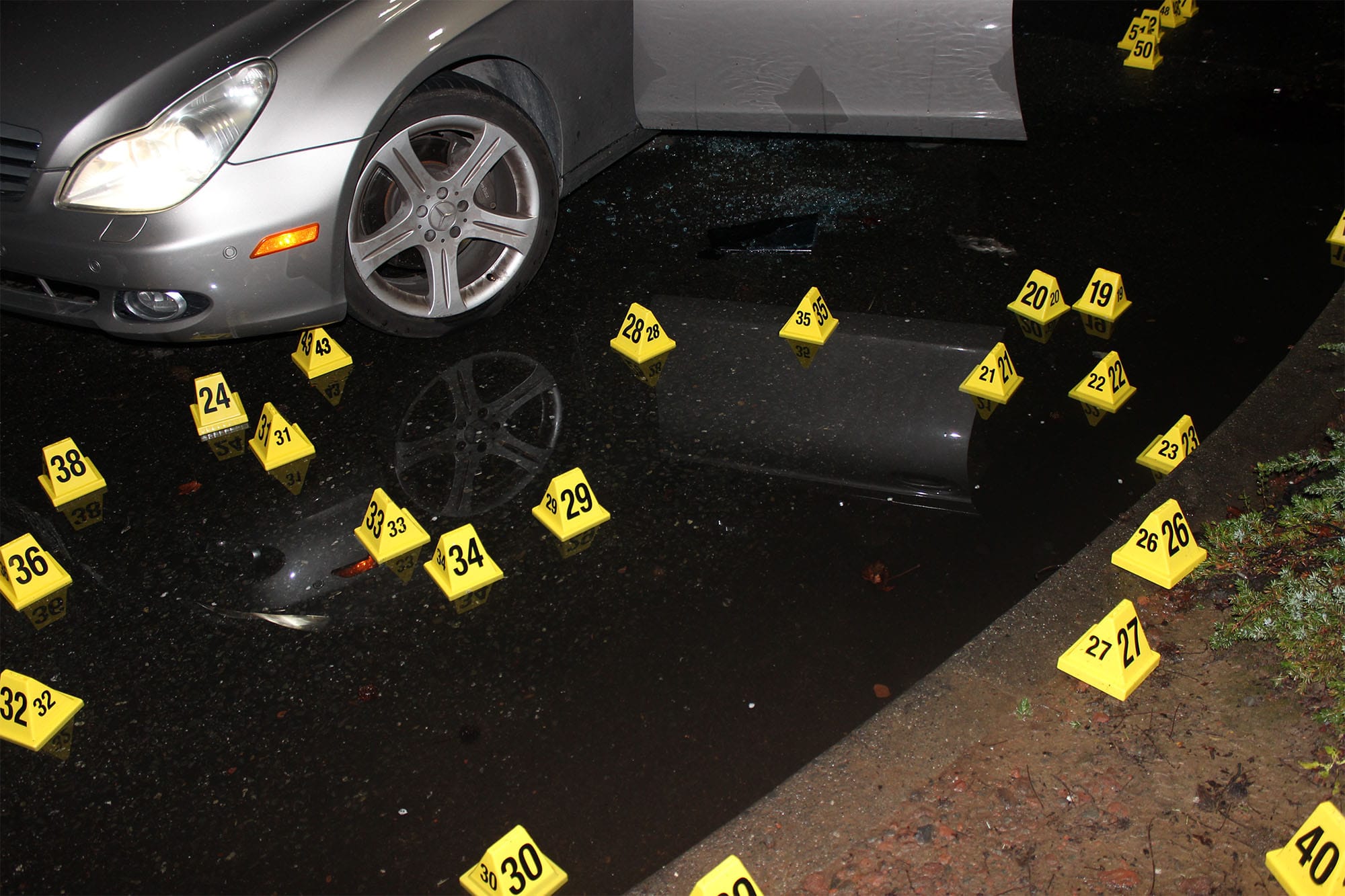
Whitney alleged in his lawsuit that when Ryan McMahon, one of the officers involved in that shooting, turned in his badge during an investigation into alterations to his gun, it had two bent tips to represent the two people he killed: McCoy and Ronell Foster, which the department failed to properly investigate. (McMahon was later fired for endangering another officer during the McCoy shooting. He has denied participating in badge bending and accused Whitney of defamation.)
Whitney delivered the latest testimony in a civil rights case brought by McCoy’s niece, Deyana Jenkins. Jenkins was pulled over three months after McCoy was killed by two of the officers who killed him: Colin Eaton and Jordon Patzer. They held her at gunpoint, dragged her out of the car, threw her on the ground and Tased her, according to the lawsuit. She was never charged with a crime.
Jenkins’ arrest was one of numerous issues with the department that Whitney said he raised with superiors before he was fired. Jenkins attorney, Vallejo civil rights attorney Melissa Nold, seeks to prove through the lawsuit that the city has a custom or policy of violating people’s rights, a notoriously difficult to prove legal standard that could lead to court-ordered reforms of the department.
Nold has been litigating cases against the Vallejo Police Department for years, including handling the McCoy family’s lawsuit – which resulted in a $5 million settlement – and a case brought by a former U.S. Marine who was attacked on his porch while filming a traffic stop. Nold said that she’s learned through the Jenkins litigation that the city also withheld evidence from her during prior cases.
One of the most difficult aspects of proving that Vallejo police engaged in a custom or policy of violating people’s rights — called a “Monell claim” — is that the stringent legal standard requires plaintiffs to find evidence of nearly identical prior violations.
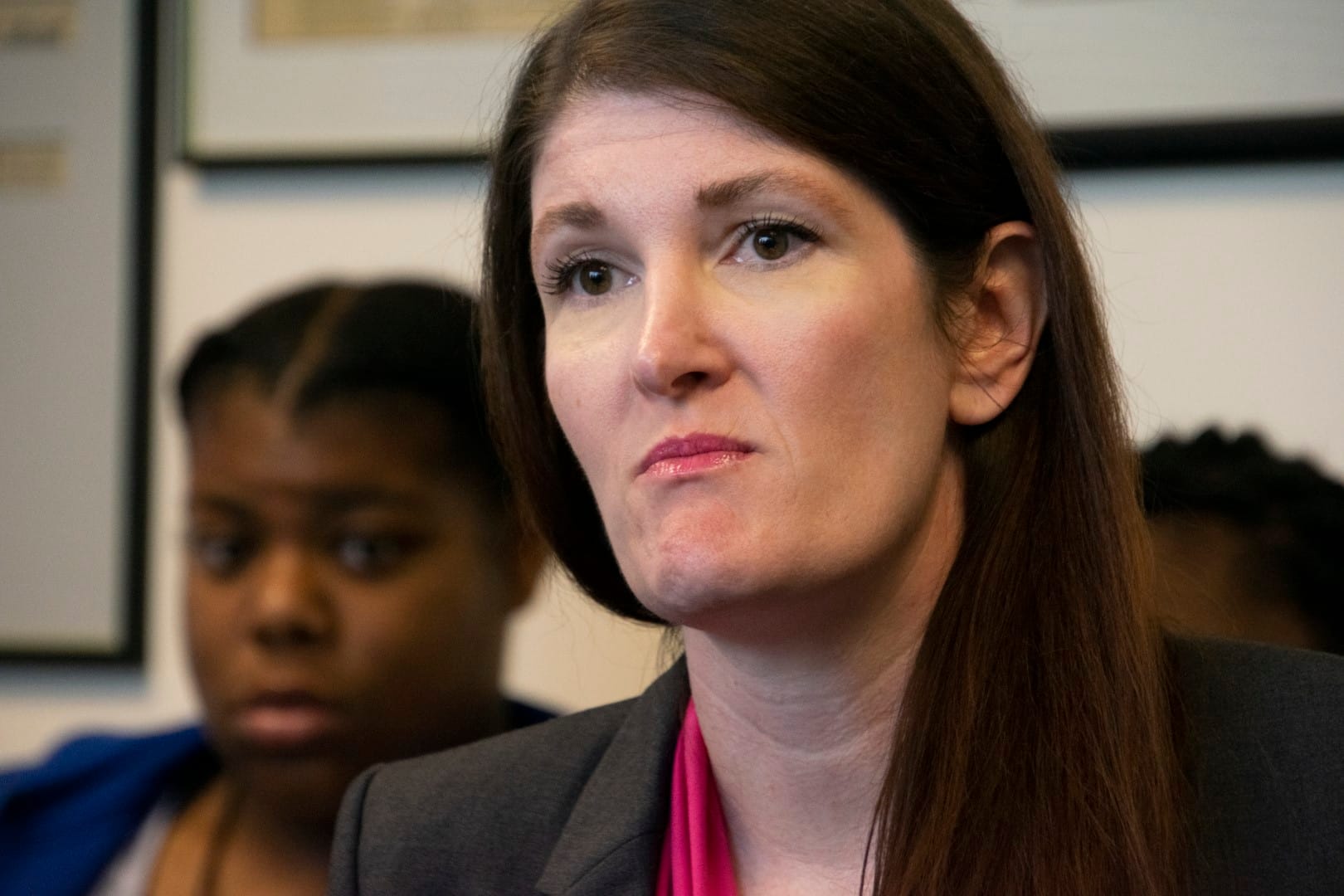
“Killings are like a thumbprint, they’re all different,” Nold said in an interview. “Here we have this objective evidence that they refused to investigate.”
The new revelations could also impact years of criminal prosecutions. If police and prosecutors intentionally withheld potentially exculpatory evidence, that could be grounds for criminal defendants to appeal their convictions.
Solano County Public Defender Elena D’Agustino said in an email that the revelations validate feelings that the Vallejo Police Department violated the law with impunity.
“The attorneys of the Public Defenders Office are extremely concerned that the Vallejo Police Department has had a practice of intentionally failing to comply with their legal obligations to preserve and produce reports of officer misconduct,” D’Agustino said. “The fact that there has been a patently illegal practice to avoid disclosing and investigating reports against officers is outrageous, especially given that this is the department entrusted with enforcing the law in Vallejo.”
Whitney testified that he told Solano County District Attorney Krishna Abrams about badge-bending and other issues within the department during a two-hour meeting late in his tenure with Vallejo police, but she didn’t investigate.
“I shared with her the issues of badge-bending and what was going on with only the two officers that I knew about at the time,” Whitney said. “And then I shared some other issues with her in regards to failed investigations.”
Abrams described the allegations of badge bending as “rumors” while running for reelection in 2022. Monica Martinez, a spokesperson for the district attorney’s office, said in an email that Abrams met with Whitney for a job interview on Aug. 1, 2019, but did not discuss badge bending. Martinez did not say whether Abrams was aware that Vallejo police were withholding records from criminal defendants.
Other evidence suggests that Vallejo police have continued to withhold those records as recently as last year. Former Deputy Police Chief Joseph Gomez alleged in a lawsuit filed in April that he discovered internal affairs investigations were “significantly behind schedule” and “approaching the one-year statutory deadline for disciplinary actions.” When Gomez attempted to clear the backlog, that “created friction with department members who appeared to prefer these cases to expire without resolution.”
Gomez alleges that he was stalked and harassed by subordinate officers and eventually fired. Nold is seeking depositions of Gomez and Abrams.
‘They couldn’t get hired in other agencies’
Nold also deposed Ron Tabronone of two veteran police recruiters who then-police Chief Shawny Williams hired from the San Jose Police Department in 2019. Williams, the city’s first Black police chief, was hired from San Jose amid a series of scandals that year with a mission to reform Vallejo’s department. But Tabron testified that their efforts to enact new hiring standards were met with resistance from veteran officers and that they, along with Williams, were harassed and threatened until they left the department.
Records previously obtained by the Vallejo Sun showed that Vallejo police had no clear hiring standards when Williams was hired and the department preferred lateral recruits from other agencies over training new hires. Tabron, who worked for San Jose police for nearly 30 years, testified that those hires were often people who had problems at other agencies.
“My understanding with a lot of the people who was hired in Vallejo fit into two different categories,” Tabron testified. “It’s because they couldn’t get hired in other agencies, or it’s because they were in trouble at a prior agency, and they came to Vallejo.”
He testified that those practices contributed to a pervasive “us vs. them” mentality for department officers and to the high rate of shootings in the city, which was galvanized by the 2011 fatal shooting of Officer Jim Capoot. The following year, Vallejo police had their deadliest year ever and shot and killed six people and wounded three.
“And so that kind of developed that us-against-them type of mentality where it’s going to be us against a community,” Tabron said. “It’s better we kill them than for one of us to get killed.”
Williams and Tabron sought a culture change at the department, seeking to hire officers with a “guardian” rather than a “warrior” mindset, Tabron said. But they found that the officers in charge of hiring at the time, then-Lt. Robert Knight and Sgt. Jared Jaksch, created roadblocks that prevented them from efficiently recruiting applicants. Knight even demanded Tabron come into the office during the pandemic while allowing Jaksch to work from home and at times refused to sign Tabron’s time cards, Tabron testified.
Whitney also raised concerns about the department’s hiring practices and testified that he advocated against hiring some specific officers, including Eaton, one of the officers involved in stopping Jenkins. Eaton declined to comment.
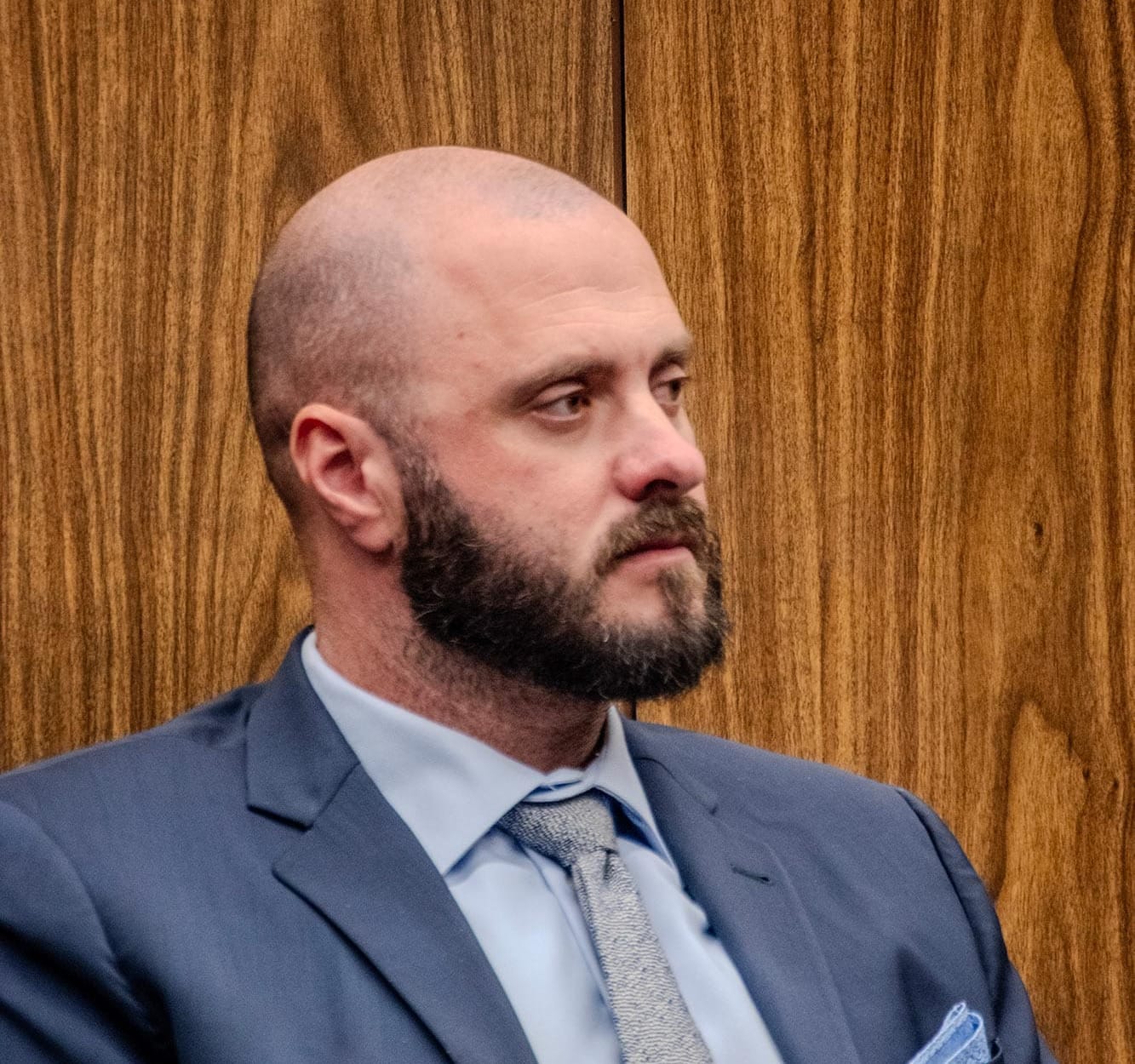
Whitney said that he’d recruited Eaton from the academy in 2017, but later was troubled by an incident from Eaton’s time in the U.S. Marine Corps. Whitney said that Eaton had gotten married to a woman he wasn’t in a romantic relationship with so they could collect separation money while he was serving overseas.
“I felt that it was dishonest defrauding the military of funds for legitimately married couples when he simply got married and allowed his – I don’t know if you would even call her his spouse – to collect this money after he gets deployed,” Whitney said.
But then-police Chief Andrew Bidou decided to move forward with hiring Eaton because both were Marines, Whitney testified.
In addition to the incidents with McCoy and Jenkins, Eaton has been involved with a string of other controversial incidents. He was suspended for 80 hours in 2020 for stepping on a man’s head during a search and was seen in a viral video punching a driver after a short pursuit in 2023, which resulted in an $11,000 settlement.
Whitney said that there were other questionable incidents involving Eaton after he was hired that weren’t properly investigated. Whitney said that in one incident early in Eaton’s tenure, Eaton approached a man who was sitting in his car watching people go to and from an ATM. Eaton spotted him, and saw him reach for something, so he dragged the man out of the car. But it turned out the man had been reaching for a prosthetic leg so he could put it on and walk to the ATM.
Whitney said that Lt. Herman Robinson alerted him to the incident and was concerned it might be racially motivated because the man with the prosthetic leg was Black. Robinson, a friend of Whitney’s, is the department’s longest tenured officer. His father was the first Black officer in the department’s history, but was demoted back to custodian after two weeks.
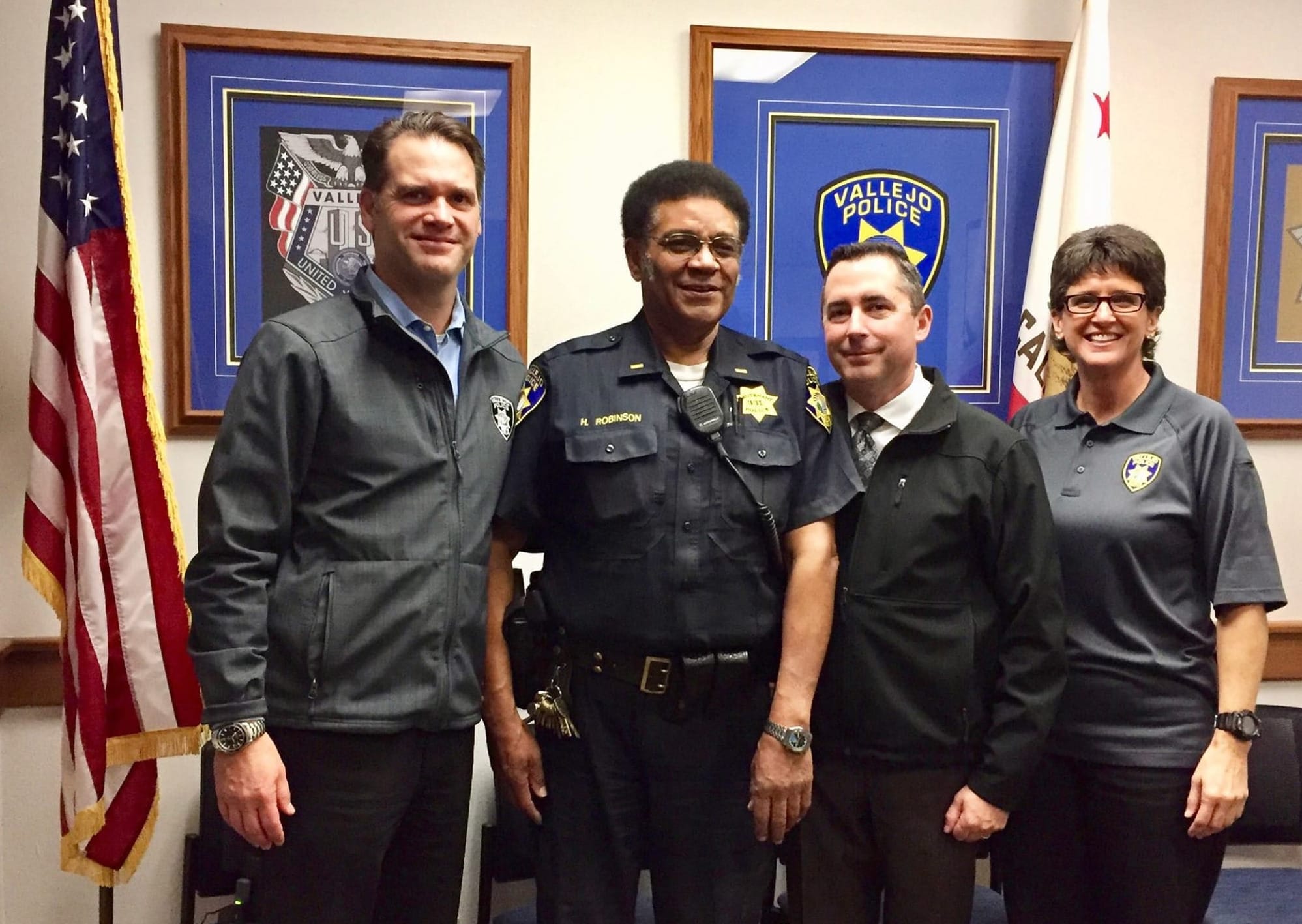
Robinson also told Whitney he encountered racism during his tenure with Vallejo police and was mistreated and called racial slurs, including by supervisors, Whitney testified. He was a sergeant for 27 years but wasn’t promoted to lieutenant and, despite being well-liked by the community, never received a medal in 47 years. “And that really soured him, and rightfully so,” Whitney said.
Other Black officers reported encountering racism in the department, including Darden, who recounted in a separate deposition how a department superior told a racist joke in his presence early in his career. And Detective Sgt. Mat Mustard – who became infamous for how he handled a 2015 kidnapping case – was investigated for repeatedly calling a Black subordinate “boy” when he was head of the investigations division.
But many incidents were not investigated while Bidou was chief, as he would ultimately decide whether or not to proceed, according to Whitney. Bidou even had an agreement with the Vallejo Police Officers Association not to conduct internal investigations based solely on body camera footage – that it would have to be spurred by an outside complaint and not by a superior’s review of the footage, Whitney testified.
Threats against whistleblowers and reformers
Meanwhile, people who tried to bring change to the department would face intimidation and threats.
Whitney said that after he was fired from Vallejo, he had an encounter with Darden in a gym in Vacaville when Darden stared at him while he was on an elliptical machine. Another gym patron noticed, and encouraged Whitney to report it, but he said not to get involved. As Whitney was leaving, Darden continued staring at him.
“And we didn’t have any conversation, but at that point I decided to go ahead and end my gym membership because I go to the gym to relax and enjoy myself, not to be bullied and intimidated by a thug that has a badge,” Whitney said.
Whitney said that he and his wife rarely left the house after that because they were afraid of running into Darden. During that time, cars would drive into his remote neighborhood, pull up and then drive away at all hours of the day, and it only stopped when a license plate reader was installed in the neighborhood. Agencies where he applied received phone calls warning them not to hire him. A threatening letter was sent to his house. And for the first time in his career, Whitney felt compelled to carry a gun off duty.
After Williams became chief in 2019, he and others he brought on board faced similar retaliation, Tabron recalled.
“He was receiving threatening messages and phone calls at his residence from unknown sources that was believed to be either current members of the Vallejo Police Department or former members of the Vallejo Police Department,” Tabron testified.
One threatening message Williams received was a recorded voice message on a greeting card, according to Tabron.
The VPOA repeatedly clashed with Williams during his time there and took a vote of no confidence in his leadership in July 2022. A sergeant was disciplined for referring to Williams as “Black Jesus.”
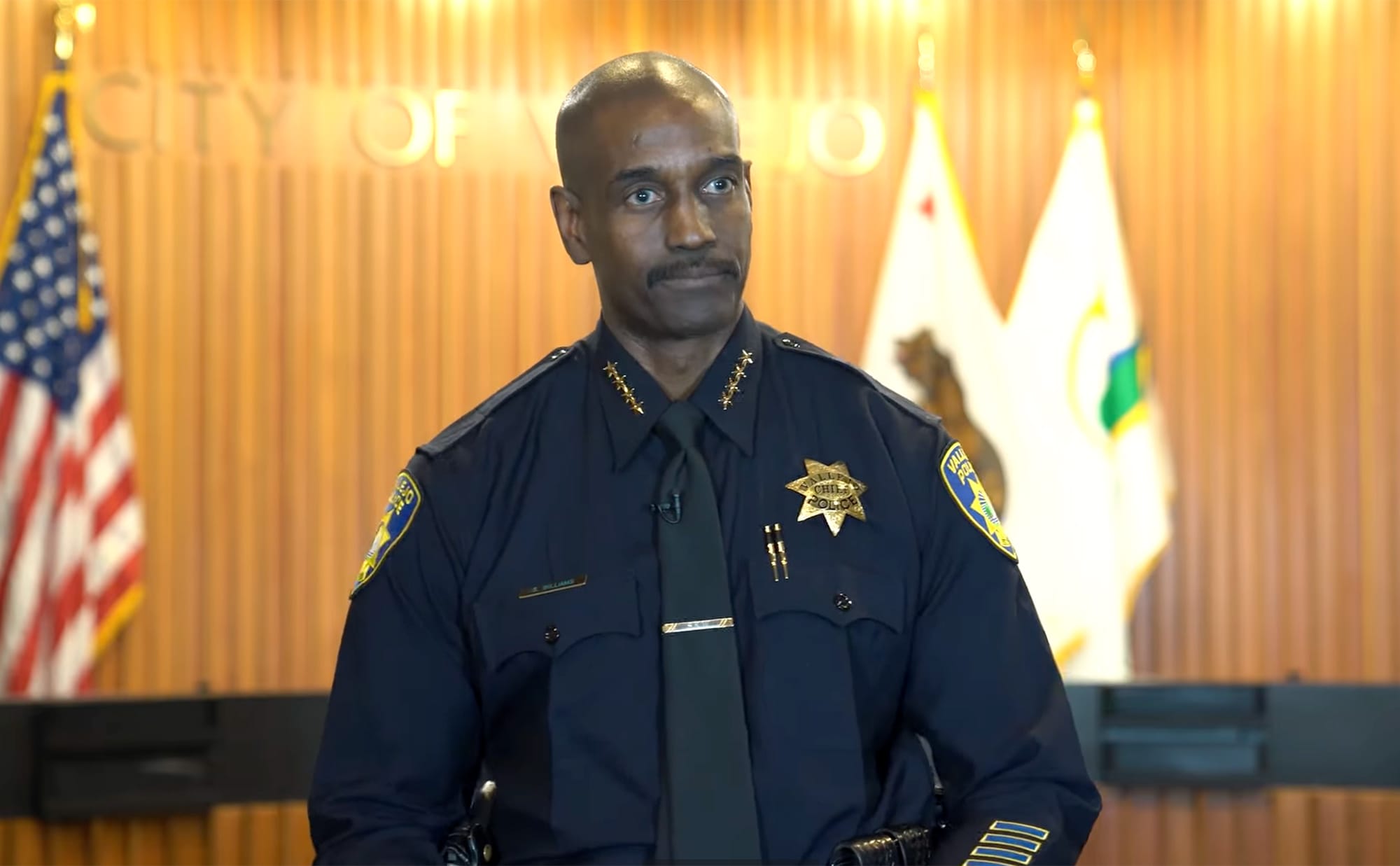
Tabron said he, the other recruiter Willams brought over from San Jose, and Brittany Jackson, the department’s civilian public information officer, also received threatening emails and phone calls. The VPOA also took aim at Jackson by filing a grievance because her position wasn’t filled by a sworn officer. Williams left the department in November 2022.
“I’ve never dealt with so many unprofessional officers and people who were so hateful and resentful for – I can only say minority officers or minority people just trying to do what is right and what the community was asking for us to do,” Tabron said. “I mean, it’s the worst experience I’ve ever encountered whether dealing with the police officer on the street in another state, growing up in the south.”
In addition to the separate filing systems in internal affairs, the city of Vallejo took other creative steps to keep records about the Vallejo Police Department under wraps. Whitney said that in 2018 or 2019, the department started adding then-Assistant City Attorney Kelly Trujillo to emails, group text messages and critical incident reviews so that the department could argue that they were attorney-client privileged and exempt from the California Public Records Act.
Nold is also seeking to depose Trujillo – whom Gov. Gavin Newsom appointed as a judge in Solano County last year – alleging that she worked to conceal and destroy records and violated orders to preserve evidence.
“That was an actual technique that was used to involve Mrs. Trujillo in everything,” Whitney said. “It was specifically talked about that we needed to leave her in everything so everything was attorney-client privileged and could never be publicly released.”
Solano County Superior Court executive officer Brian Taylor responded to a request for Trujillo to comment by saying she was prohibited by law from publicly commenting on any pending court proceedings.
After Williams stepped down as chief in 2022, then-Deputy Chief Jason Ta, another officer Williams had hired from San Jose, became the interim chief and later was appointed permanent chief.
Just before Gomez was fired as deputy chief last year as he raised questions about the internal affairs practices, Knight, a former VPOA board member and the lieutenant who blocked Tabron’s recruiting efforts, was promoted to deputy chief. Tabron said that Knight’s promotion surprised him and made him question the department’s commitment to change.
“If you want to change the culture of the department, you start with your recruiting to change it from the bottom,” he said. “And if you’re going to change it in the top, you have to hire from outside. You have to bring in new people from the outside that has no ties or loyalty to the POA or to the department.”
“And by promoting someone from within who pretty much has proven himself loyal to the department, you’re not going to be able to effect change,” Tabron added.


